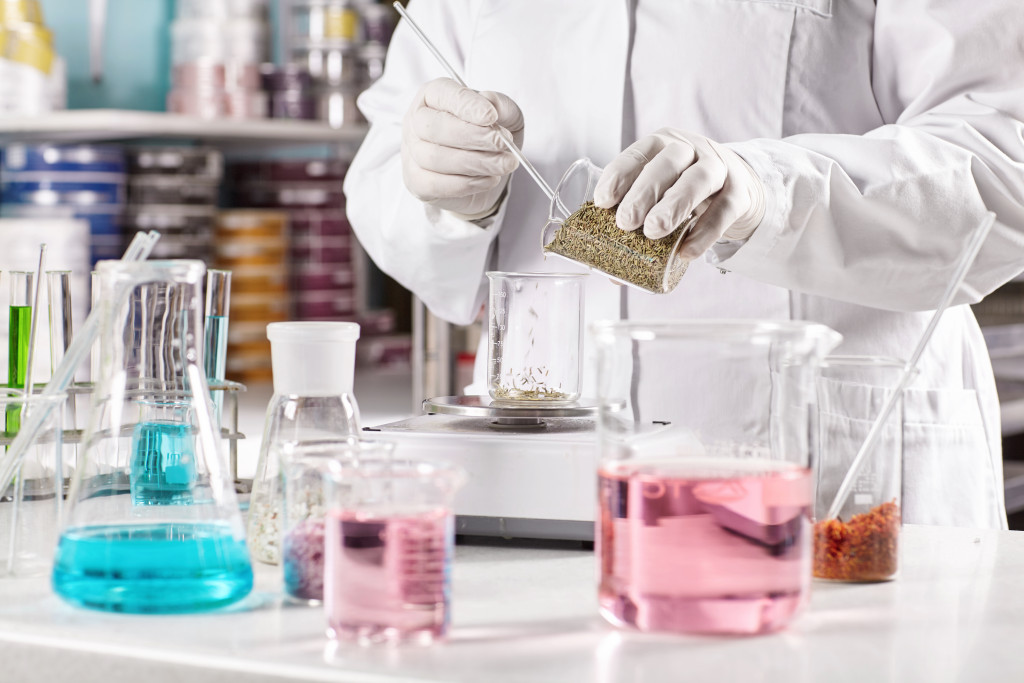Choosing the right lab for your makeup or skincare brand can make or break your business. Take, for example, the case of YouTube beauty vlogger turned makeup brand owner Jaclyn Hill. Her much-anticipated cosmetic brand failed before it even began. That is because her customers discovered mold, hair, unidentified black spots, unsightly holes, and other bothersome and potentially harmful things in her newly-launched lipsticks.
While the internet, her fans, and observers held her accountable, we also can’t deny the part that the laboratory played in the failure of her first launch. This is why new brand owners need to do their due diligence to ensure that they’re working with laboratories that are above reproach, lest they want their customers to be harmed by faulty products. If you’re starting a makeup or skincare brand, here are some essential pointers for choosing the proper private label laboratory.
Decide between private label and white label
Private-label manufacturers provide fully-made products that brands or business owners like yourself can sell under a different name. With this option, you will have the opportunity to customize your own products — ranging from color to packaging and fragrance. On the other hand, white labeling refers to a manufacturer that creates products that can then be sold under various brand names. The difference is that private-label manufacturers provide more room for customization.
Whichever route you choose, make a habit of checking the ingredients and the formula, ensuring that these factors comply with international and local regulations and you judge based on where your customers and target demographic are located.
Inspect the laboratory yourself
This may go without saying, but before you partner with a manufacturer, make sure to visit their laboratory first. Here are some things you need to watch out for:
- Make sure everything is sterile. Check if everyone is wearing their hairnets, masks, gloves, and protective equipment properly.
- Check the equipment and machines to see if they are sterile and spotless. The devices like single head piston filling ones must be pristine from all angles, and the surrounding workers must be adequately protected and keeping a safe distance.
- Inspect the quality control. One of the things Jaclyn Hill blamed for the unsightly materials in her lipsticks was that her quality control was lacking. Ensure that the lab you work with impeccable quality control, which means they check for the integrity and quality of the final product in every batch.
- Feel free to see a copy of their license to operate and other related documents. The last thing you want is to partner with a laboratory that’s operating illegally.
- Ask them if they are compliant with the regulations of the Food and Drug Administration (FDA) and if their facility has the current Good Manufacturing Practices (cGMP) label.
Once you’ve inspected the laboratories you want to work with, narrow down your list based on the following criteria.
Innovation

To ensure the safety and health of consumers, manufacturers tend to make basic formulations for products like creams, lotions, foundations, and other types of products. This is why every time laboratories try to innovate, they might step into some gray areas in terms of testing regulations.
What you want is a laboratory that you can work alongside within their process of innovating, a lab filled with trustworthy experts who have the skills to modify current methods and strategies without sacrificing sound science, ethics, and practices that still comply with regulations. Find a lab that can help you create innovative products but are still 100 percent compliant with rules and safety and health guidelines.
Credibility
This leads us to the following non-negotiable characteristic, which is credibility. When looking for a laboratory, it’s essential that you do as much research as you can before going into the meeting and that you prepare a list of questions they can answer. Not only is it acceptable to ask as many questions as you can, but it is also encouraged to be discerning and even skeptical of every lab you come across.
Your brand will have your name on it; it will be your own reputation and credibility on the line, so make sure any lab you work with is above reproach as well. Ask how they perform quick tests and how they come about results, and how they mitigate potential risks and address issues before they become bigger problems in the future.
The laboratory or manufacturer you work with can make or break your cosmetic or skincare business. Do your research, ask questions, and don’t settle for second best. Your brand depends on it.
